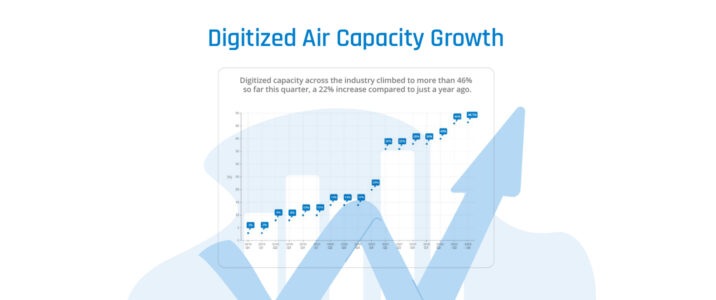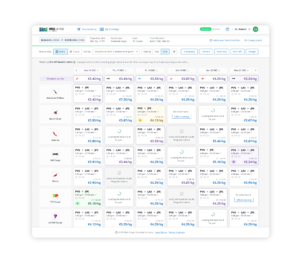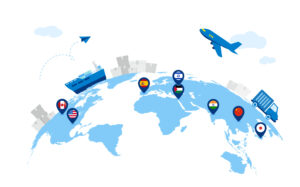Carrier digitization reaches an all-time high in 2022 | WebCargo

Efficiency.
The ten letters that both airlines and forwarders are forever chasing. Air cargo is a notoriously opaque industry, in many cases relying on legacy data systems and manual processes.
This bottleneck creates delays for rapid pricing and booking. This, in turn, makes it more difficult for carriers to fill hold space efficiently on a per-flight basis, unlike their passenger counterparts, which in-turn affects air cargo pricing and capacity. Ultimately, IATA reports show that load-factors hover in the mid-50% as a result.
“A few years ago, those tasks took as much time, and more, as the transit time for the shipments,” Avianca Cargo’s Digital Development Director, Leonel Ortiz, recalls.
As a result, carriers and forwarders are looking to address this at the source, streamlining their operations and transactions – not just to maximize their win rates, but also to drastically shrink the time it takes to move goods.
What carriers and forwarders have realized
Importers, exporters, and the forwarders that service them are looking to make more informed – and faster – decisions. As a result, forward thinking airlines are increasingly making real-time pricing and capacity information available, and forwarders are leaning towards more sophisticated tools to leverage the use of this data in meeting more sophisticated shipper expectations. Progressively volatile global freight demands mean a more competitive environment when vying for business.
Things are changing.
For airlines, providing dynamic, real-time rates and access to actual capacity to shorten the quoting process and facilitate eBookings has therefore become a must in order to compete in the digital fray. Avianca has turned this into a core focus as well.
“We are providing access to real-time rates [and] capacity. With that, we are accelerating the decision-making for our customers. We give them tools to close deals faster, and with more accurate information,” Ortiz notes. “That way…we are making our industry a more competitive one.”
Providing customers with the increased transparency, speed, and efficiency they’re looking for automatically creates a higher bar for the speed required to win business – one that Avianca Cargo is looking to set as high as possible,
“We are in a business that supports the need for urgency, and now our customers will be able to see rates and availability in seconds,” says Ortiz.
Without embracing digitization, airlines and forwarders cannot possibly quote in real-time, which ultimately leads to reduced revenue and higher internal costs.
A scalable solution
Sustainable success must be scalable. Digital sales do just that, and Avianca Cargo is leading the charge in joining WebCargo, the largest digital booking and payments platform, for a low-cost avenue to expand into new markets, extending their reach without the significant costs of building up a new local sales presence.
“We are growing and we are transforming significantly…and being able to reach a larger customer base and offer our destinations with [a] simple and scalable solution is very important for us to reach our goal,” Ortiz explains.
Carrier digitization enables airlines to increase revenue by reaching new markets and segments, and by making existing customers aware of the full range of offerings available by the carrier. Online sales also increase speed and reduce errors in the quoting and booking process, translating into lower sales costs and the ability to direct resources away from repetitive tasks and towards adding value.
Carrier digitization is a win for forwarders too
Customers increasingly expect the ease of the B2C experience in B2B settings, so the impact of digital air cargo on customer experience is paramount. Happy customers are loyal customers, so airlines providing more optionality to shippers for increased visibility, speed, and efficiency of freight quoting and booking has therefore become a necessity for airlines and forwarders looking to gain an edge in customer acquisition and retention.



